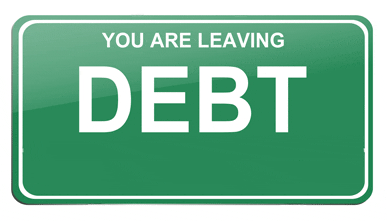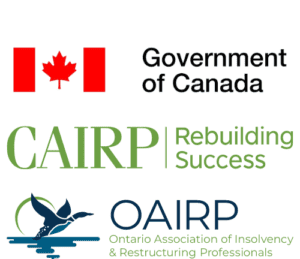Credit card debt grows fast because interest compounds every month and balances become difficult to control. A consumer proposal is designed to break this cycle by freezing interest and reducing the total amount you must repay.
Credit card debt becomes overwhelming when:
- Interest rates are high, often between 19% and 29.9%, causing balances to grow even when you make regular payments.
- Fees and penalties accumulate, especially after missed payments or going over your limit.
- Minimum payments barely reduce the balance, leaving most people trapped for years.
- Multiple cards become difficult to manage, creating stress and constant financial pressure.
- Unexpected expenses push balances higher, making it harder to regain control.
A consumer proposal resets the situation and replaces chaos with a clear, manageable plan.
How a Consumer Proposal Reduces Credit Card Debt
A consumer proposal legally reduces your total credit card debt and spreads the remaining amount over up to five years.
Most people repay only a portion of their total balance. A proposal helps by:
- Eliminating interest immediately, so your debt no longer grows every month.
- Reducing the total amount owed, often to about 30% of your current balance.
- Combining all cards into one payment, which simplifies your monthly budget.
- Protecting you from collection agencies, so calls and letters stop right away.
- Creating predictable monthly payments, based on what you can realistically afford.
This turns high-interest credit card debt into a structured, manageable plan.
What Happens to Your Credit Cards After Filing
Once your proposal is filed, your active credit cards are cancelled, and balances are included in the proposal.
This may feel stressful at first, but it is temporary. You can rebuild your credit quickly by:
- Using a secured credit card, which reports positive history every month.
- Keeping balances low, which helps your score rise faster.
- Making on-time payments, showing lenders you are responsible with credit.
- Avoiding new unnecessary debt, which strengthens your long-term financial health.
- Using a simple budget, keeping spending predictable and under control.
These small steps help rebuild your credit score quickly.
Why Credit Card Companies Accept Consumer Proposals
Creditors accept proposals because they receive more money than they would in a bankruptcy.
A proposal is legally binding and guarantees repayment over time. Credit card companies often agree because:
- They recover a portion of what you owe, which is better than receiving nothing.
- They prefer structured, supervised payments, which reduce their risk.
- The proposal is backed by federal law, giving them confidence in the process.
- Trustees design realistic repayment plans, based on proven acceptance patterns.
- Fixed payments help you succeed, reducing the chance of default.
This creates a win-win structure for both you and your creditors.
How Much You Can Expect to Save
Most people save thousands of dollars by reducing credit card balances through a proposal. Your savings come from:
- Cutting the total debt by about 70%, depending on your situation.
- Freezing all future interest, which stops balances from growing.
- Spreading payments over 60 months, lowering the monthly cost.
- Reducing financial stress, making it easier to stay on track.
- Avoiding bankruptcy, while still receiving strong legal protection.
These savings give you long-term relief and a realistic plan to become debt-free.
When a Proposal Is Better Than Credit Counselling
Credit counselling can help some people, but it does not reduce the principal amount you owe. A proposal is usually the better option when:
- Your credit cards are maxed out, and minimum payments aren’t making progress.
- Interest is overwhelming, making repayment unrealistic.
- You have multiple cards, each with high balances and penalties.
- Collectors are calling, and you need legal protection.
- Your income is stable, but not enough to repay everything in full.
A proposal gives you deeper relief, faster results, and much stronger protection.










